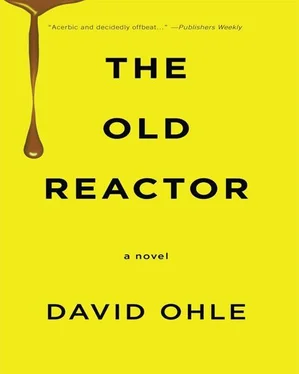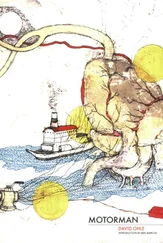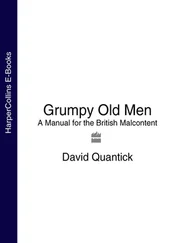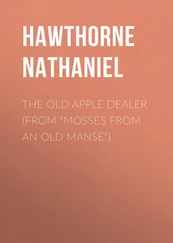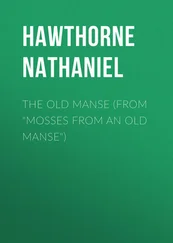David Ohle - The Old Reactor
Здесь есть возможность читать онлайн «David Ohle - The Old Reactor» весь текст электронной книги совершенно бесплатно (целиком полную версию без сокращений). В некоторых случаях можно слушать аудио, скачать через торрент в формате fb2 и присутствует краткое содержание. Год выпуска: 2014, Издательство: Dzanc Books, Жанр: Современная проза, на английском языке. Описание произведения, (предисловие) а так же отзывы посетителей доступны на портале библиотеки ЛибКат.
- Название:The Old Reactor
- Автор:
- Издательство:Dzanc Books
- Жанр:
- Год:2014
- ISBN:нет данных
- Рейтинг книги:4 / 5. Голосов: 1
-
Избранное:Добавить в избранное
- Отзывы:
-
Ваша оценка:
- 80
- 1
- 2
- 3
- 4
- 5
The Old Reactor: краткое содержание, описание и аннотация
Предлагаем к чтению аннотацию, описание, краткое содержание или предисловие (зависит от того, что написал сам автор книги «The Old Reactor»). Если вы не нашли необходимую информацию о книге — напишите в комментариях, мы постараемся отыскать её.
The Old Reactor — читать онлайн бесплатно полную книгу (весь текст) целиком
Ниже представлен текст книги, разбитый по страницам. Система сохранения места последней прочитанной страницы, позволяет с удобством читать онлайн бесплатно книгу «The Old Reactor», без необходимости каждый раз заново искать на чём Вы остановились. Поставьте закладку, и сможете в любой момент перейти на страницу, на которой закончили чтение.
Интервал:
Закладка:
Off to the side, Mrs. Franklin, a free woman, wearing a bright yellow and white pantsuit, stopped puttering in her garden and trotted toward the reporter. “Isn’t this a beautiful garden?” she asked. “I just love working with my flowers. That’s how I spend most of my time.”
When she had gone back to her garden, Franklin said, “Even without love, Sophie and I talk a lot about our shattered lives. I get strength from her. She is at peace with herself. She is truly a great lady.”
Franklin was met on the patio by a visiting nurse who removed his gray sports coat and made him swallow two or three pills. She then checked his blood pressure and palpated his wide abdomen, causing him to gasp when her thumbs dug into his spleen.
When the procedure was over, a pained Franklin beckoned to the reporter. “Come see my office. I’ll give you a souvenir.”
The reporter followed eagerly and stood at Franklin’s desk, watching him rummage in the drawers until coming up with an autographed ball. “Perhaps you’ll like this. It’s the only one I have left. The rest have been sold.”
His handshake was firmas she accepted the ball and left.
Moldenke retrieved his red suit, climbed back into it, and went to the changing nooks. The flimsy lock, as he feared, had been broken open. His dirty uniform hung there still, but his pass card was missing from the pocket.
The attendant at the rental shed showed a hardened attitude at first. “Anybody stupid enough to leave it in there with that little lock, I got no sympathy for.”
“How will I get on a streetcar?”
“I don’t care. I’m about to close.”
“Have you seen Sorrel? She must have come here to turn in her suit and change.”
“Big Ernie’s girl?”
“That’s her.”
“Ernie came and got her in his motor.”
“Did she mention she was with someone? This was a date. We were together. I thought she would wait.”
“Brought back her suit, changed clothes, and left. That’s it.”
“All right. Thanks.”
“Wait a minute,” the attendant said. “I’m feeling bad about this. Look, people lose their pass cards here all the time.” He reached into a box filled with them. “Here, take this one.” He handed a card to Moldenke embossed with the name Enfield Peters.
“I know him,” Moldenke said. “The actor.”
The attendant chuckled. “Free people don’t need a name. Half the folks in Altobello go around with somebody else’s card. Nobody cares. You want another card? I got plenty of unknowns.”
Moldenke thought of taking another one but reconsidered when he realized that Peters’ name on the card could pave the way for little courtesies and attentions he wouldn’t get otherwise. “No, I’ll keep this one.”
The Peters pass card proved effective when Moldenke boarded the car back to the Tunney Arms. The conductor tipped his cap and smiled. “Evening, Mr. Peters.”
“I’m going all the way to the Tunney Arms on the west side.”
“Yessir. Sit anywhere you like. I loved you in Who Puked? Great film.”
“Thank you. It was one of my best.”
“It took me a good while to figure out it was the waiter,” the conductor said.
“It had to be him. The clues were there all along.”
“You don’t look like you did on screen with an ear like that.”
“They do wonders with powder, wax, and rouge these days, and the lighting, too.”
Moldenke took the first seat available, let his head sink down to his chest, and closed his eyes. He wanted to be in a light trance for the long ride back, if not asleep. The clanking of the car’s wheels on the steel tracks and the squeal of the rusty springs made any state but hyper-vigilance impossible.
He saw that the passenger sitting next to him was reading the last few pages of the Treatise and when his stop came, he got up, closed the Treatise , and held it out for Moldenke. “Here, you want this? It’s just a load of shit. It’ll put you to sleep.”
“I’ll take it, thank you.” The Treatise would be just the thing, Moldenke thought, for going to sleep on the car. After reading a few pages dealing with the effects of sympathy in the distresses of others he was drowsy, a few more and he was asleep until awakened by the conductor. “Mr. Peters, you’ve shit in your uniform. You’re getting off here. Do you know where the public bath is?”
Moldenke stirred awake. “I know.”
The passenger sitting next to him, with a free child on his knee, held his nose. The child repeated the act.
Moldenke got off at the stop nearest the Tunney and walked down Arden to the public bath. The weather was getting nippy — probably an ice storm on the way. Conditions had been benign for a few days. A change was overdue. He hoped that all the putrid water had been run through the system and that the bath would be open. It was, but with limited services.
“I can wash your uniform and your drawers and your socks, but I can’t dry them. The furnace is out of radio gas. And only one pool is open, the first one. The water is nasty. It might be better tomorrow.”
“Wash the uniform. I’ll wait in the boilery. I have a book.”
The bath aide gave Moldenke a towel to cover himself. “I know that book, the Treatise . Everybody’s reading it. I read it.”
Moldenke settled on a bench, lit a Julep, and read Part One, in which Burke claims that terror is not only the strongest of the emotions but the source of the sublime. Ideas of pain, he goes on to say, are more powerful and more memorable than ideas of pleasure.
The bath aide stirred Moldenke’s boiling clothes with a long wooden paddle. “Have you gotten to the part where he says that pain is what we remember, not pleasure?”
“I did see that. I can’t disagree.”
“So in the end, he comes down on the side of the sublime.”
“So I’ve heard.”
“What about the chapter on Beauty? Did you read that yet?
“A little of it, maybe.”
“He says love is the beauty of sex . Animals have sex without love. Jellyheads have sex, but they behead the ones they love most. We’ve got love, and that’s the beauty of it.” The aide lifted the wet, hot clothes with his paddle and flung them into a hydraulic press to squeeze them and return the water in a little wooden chute to the boiler. “Okay, your stuff’s ready. I would advise you not to waste time getting to your room. It’s cold out there. A big front coming through.”
It was warm and moist in the boilery, and Moldenke’s clothes, while wet, were still warm from the hot water. When he had them all on, and his boots laced, he tipped his cap to the aide and walked north on Arden into a stiff, icy wind. The Tunney was two and a half blocks away. In hopes of keeping his clothes from freezing before he got there, he walked briskly, afraid that if he ran he risked a slip and fall on the sidewalk’s sheeting ice. Better to have a frozen uniform than a fractured skull.
The concierge stood in the Tunney doorway with her arms folded, watching pedestrians go by. Some were fortunate enough to have heavy jackets. Others, like Moldenke, weren’t, and his wet uniform was beginning to freeze.
When the concierge saw him coming, she opened the entry door. “Come in before you turn blue. Don’t let that ear get frostbite. It looks much better, though.”
“It must have been the heavy water bath.” Moldenke touched the tip of his ear, and even with numb fingers, he felt a change. It was no longer as rough-skinned or as swollen.
The concierge opened her Dutch door. “Come inside. I have a mirror in the bathroom.”
A burst of warm air struck Moldenke’s face. He glanced into the small apartment’s interior, where a pellet stove burned brightly in the parlor, radiating warmth only as far as the Dutch door. The moment he stepped through the door and turned toward the bathroom, his uniform began to thaw. He was leaving wet boot prints.
Читать дальшеИнтервал:
Закладка:
Похожие книги на «The Old Reactor»
Представляем Вашему вниманию похожие книги на «The Old Reactor» списком для выбора. Мы отобрали схожую по названию и смыслу литературу в надежде предоставить читателям больше вариантов отыскать новые, интересные, ещё непрочитанные произведения.
Обсуждение, отзывы о книге «The Old Reactor» и просто собственные мнения читателей. Оставьте ваши комментарии, напишите, что Вы думаете о произведении, его смысле или главных героях. Укажите что конкретно понравилось, а что нет, и почему Вы так считаете.
